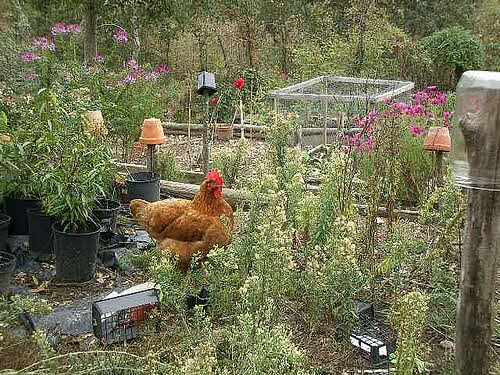Food is a hot topic in green living. With climate changes and pollution headlining the news, food sources are coming under greater scrutiny. Where we get our food is almost as important as how we get it. Deciding to incorporate a healthier diet is always good, and there are ways you can do that in a sustainable manner. Healthy changes to your diet can be good for you and the environment.
Look around your neighborhood. Is there a community garden that will provide you a small plot of earth to grow your own vegetables? If not, don’t despair. There are many ways to incorporate container gardens into our busy urban lives. Bring a little green to your apartment patio or back porch with a trio of tomato plants. If you want to start organic from seed, heirloom varieties of seeds can be purchased online. Start the seeds indoors in small pots and hang a fluorescent bulb above them to help them sprout. Then after the last frost of the season, move the seedlings outside to the porch.
Make certain that you plant your vegetable varieties according to the seed packet instructions. Although almost anything can serve as a planting container, ensure that the plant lives a long life by providing proper drainage. Depending on the variety, some plants need more room to spread out and grow than others. For example, carrots need less square footage to grow than cabbage.
Your home garden is also a great way to start composting kitchen scraps. Compost bins and tumblers come in all sorts of shapes and sizes to suit your green living style. Remember to alternate wet vegetable scraps and fruit peelings with dry, brown materials like leaves and shredded newspaper.
The key to growing quality vegetables at home is great soil. This means irrigating the plants regularly and feeding the soil valuable nutrients. There are also many non-chemical pest solutions for your garden. One of the healthy aspects of your personal garden is that you know for certain how your vegetables are being handled.
Growing vegetables at home can teach valuable lessons to children about the life-cycle of plants and the responsibility of caring for the earth. Plus, there’s nothing as amazing as watching something you planted grow into something you can eat. There are many things to be learned from the growing process; how we can become more self-sufficient as people, the importance of maintaining biodiversity and that our food choices should be nutritious and sustainable.
In order to be good stewards of nature we must be responsible in all aspects of our life; from the beds we sleep on to our eating habits. Homegrown vegetables are a great way to share with neighbors and spread the good eating word.
Image credit: hardworkinghippy via photopin cc


Dennis Lowery
This is my first year with heirloom seeds-need some tips.The last couple years my tomatoes have been terrible.I threw away as many as i kept.Thay had rotten spots on them.Last year it was so dry here i tried to water but not enough.I mulched very heavy but that was not the answer.Some said to use a copper spray?????Need Help